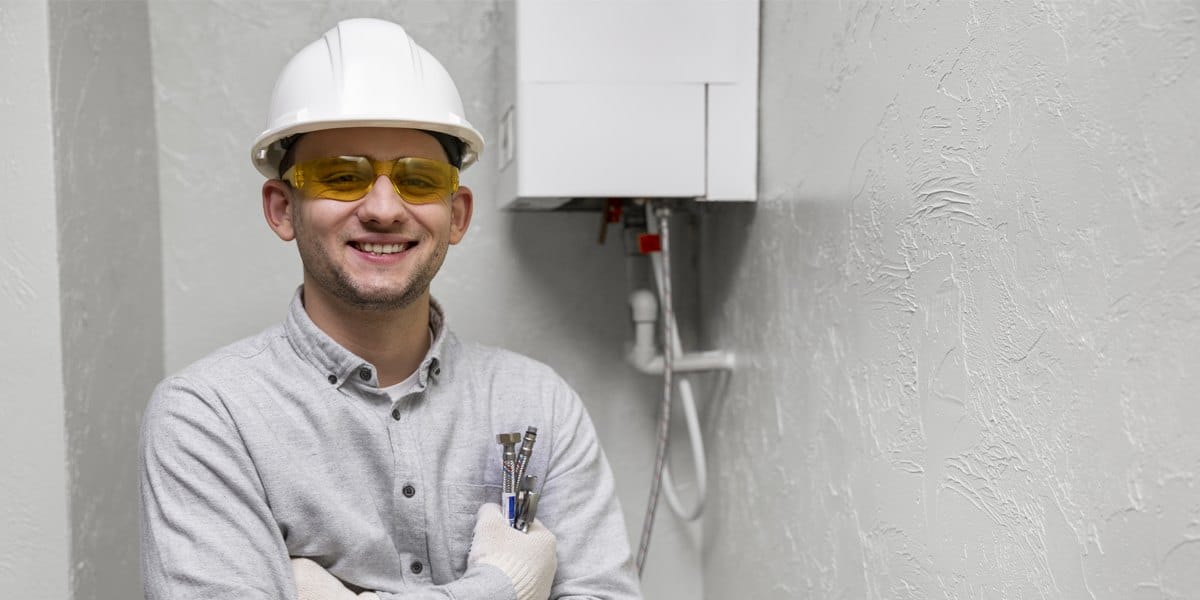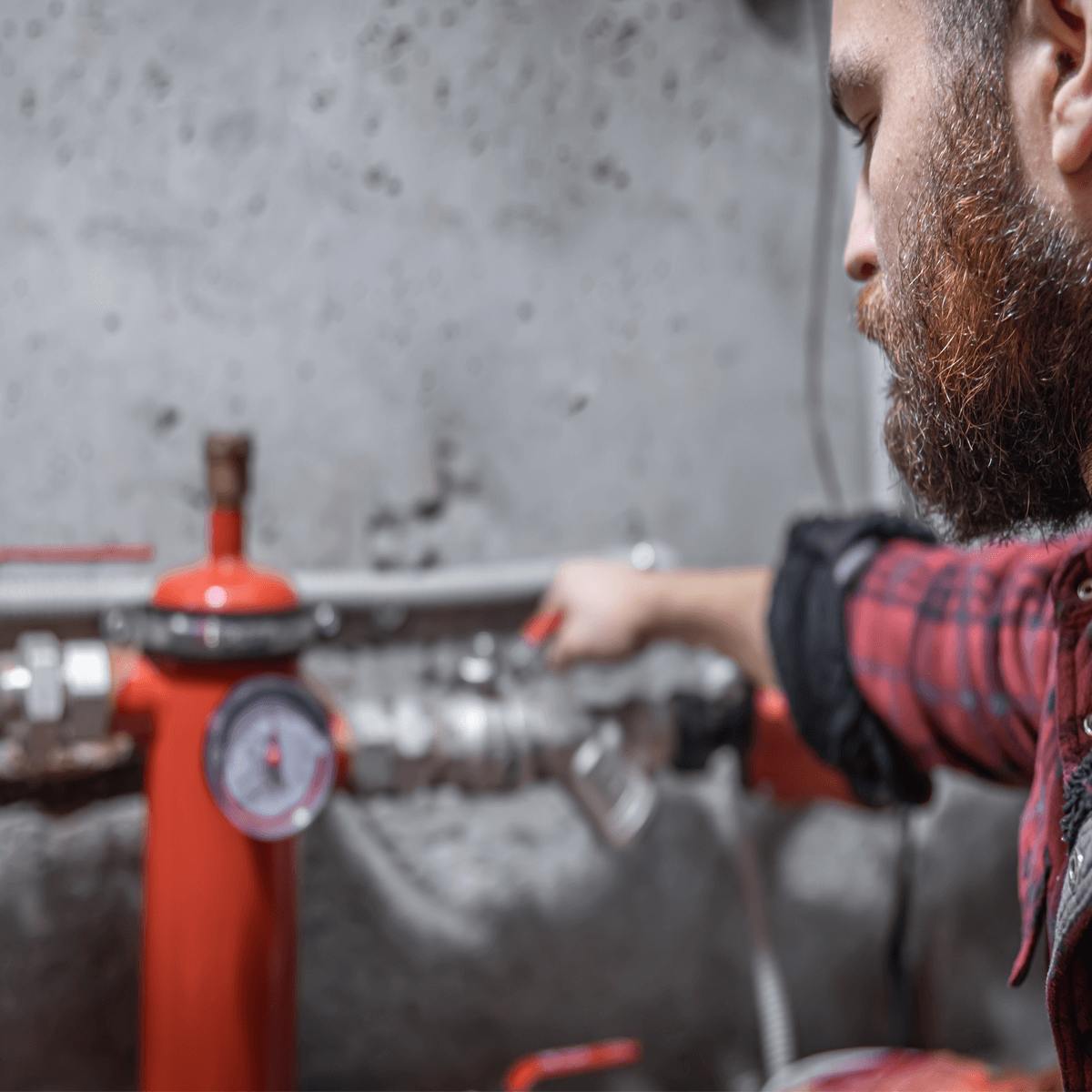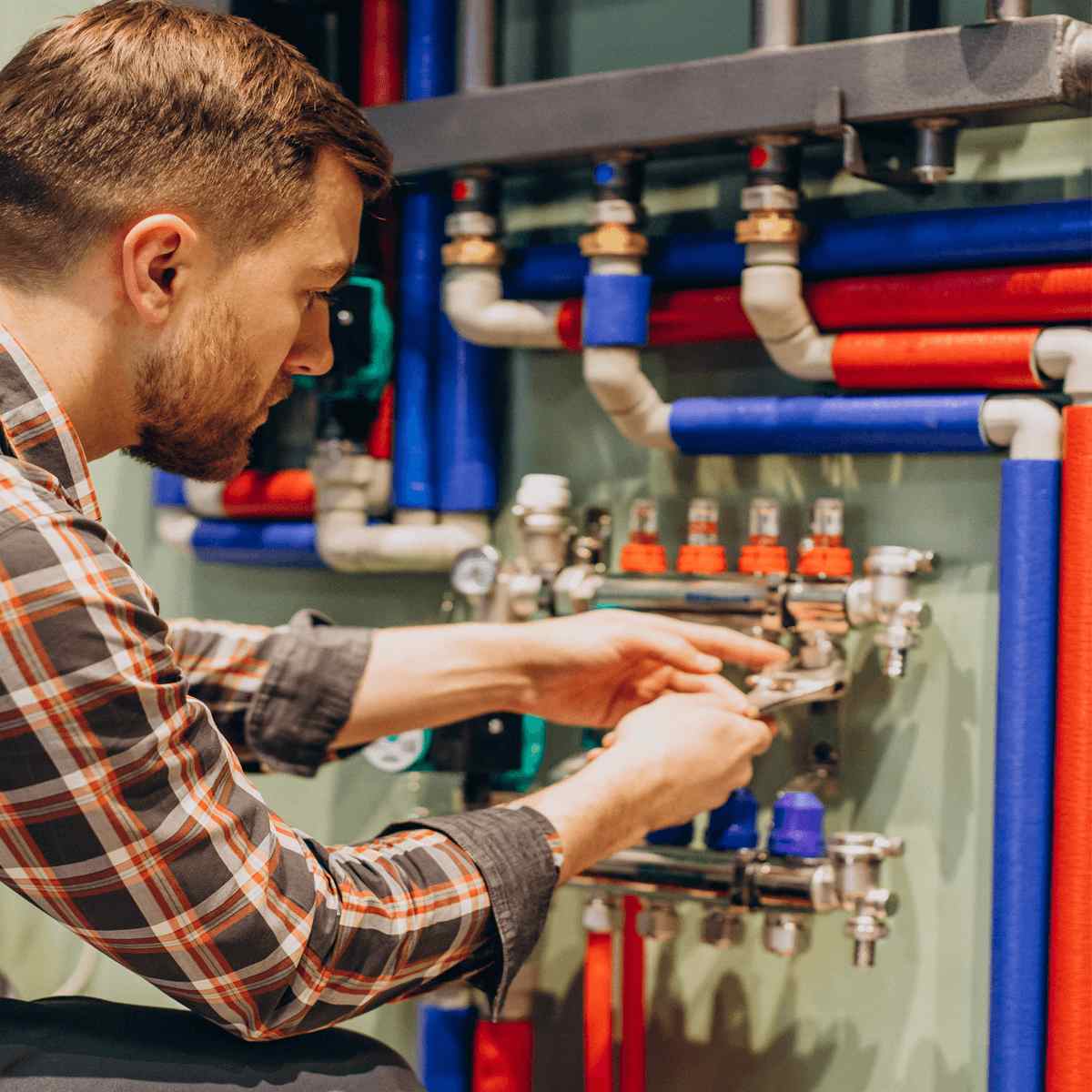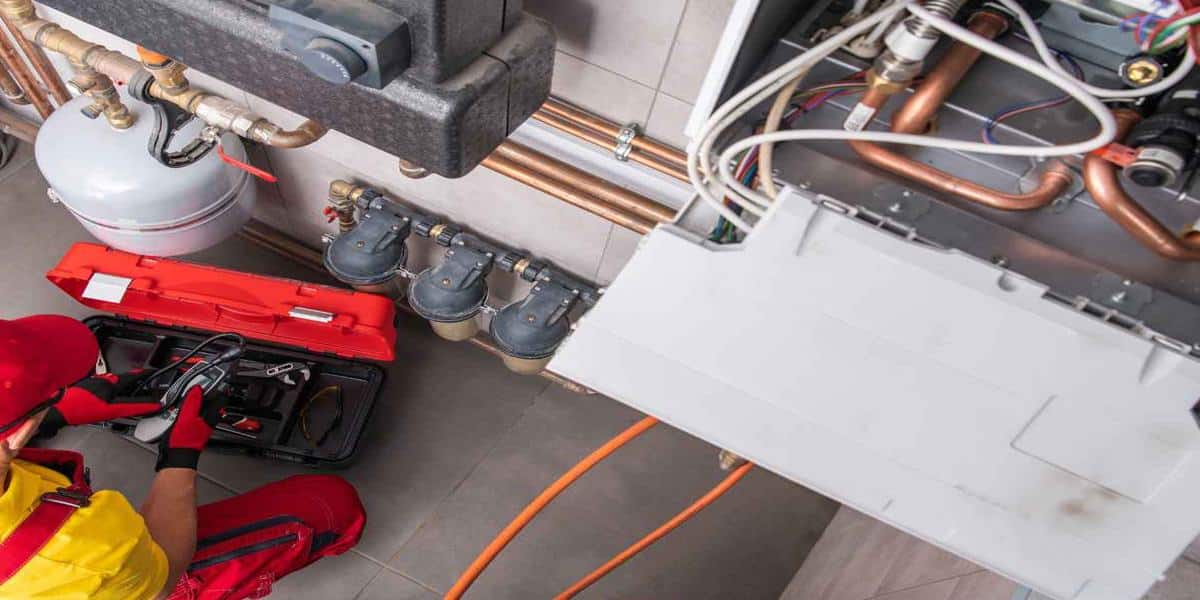What Are The Signs That Your Water Heater Is Malfunctioning?
Table of Contents
ToggleWater Heater Repair – Signs, Solutions, and Savings
Having a well-functioning water heater becomes indispensable when it comes to keeping your home cozy and comfortable during Sacramento’s frigid winters. However, like all appliances, water heaters may experience issues over time, causing annoyance and discomfort. Homeowners often take the steady flow of hot water for granted until something goes amiss! Thus, investing in a timely water heater repair in Sacramento is worthwhile to avoid disrupting your daily routine and maintaining a comfy environment throughout the season.
Fortunately, water heaters seldom fail without warning. Hence, it is critical to heed the warning indications that a water heater malfunction is looming. In this blog, we have explored the telltale signs that your water heater needs attention, the preventative measures to prevent abrupt water heater failure, valuable tips to hire the best heater repair company and other aspects.
Importance of Water Heater Repair
Prioritizing water heater repair is imperative for your comfort and your home’s structural integrity. A faulty water heater inflicts a handful of issues, ranging from inadequate hot water to potential safety risks. Here below, we have enlisted a few reasons why water heater repair is critical for Sacramento homeowners:
Ensuring Comfort
A broken water heater may lead to lukewarm or chilly showers, causing discomfort to your family while making your daily routine less pleasant, especially during cold Sacramento Winters.
Energy Efficiency
An inefficient water heater might trigger increased energy bills since it works harder to generate hot water, squandering energy and money.
Preventing Safety Hazards
Broken heaters can be detrimental, prompting leaks, gas-related problems, or even fires. However, you can avert these dangers with prompt repair.
Extending Lifespan
Periodic upkeep and swift fixes will help your water heater last longer, saving you money on untimely replacements.
Typical Water Heater Problems
Before exploring the warning indicators of a faulty water heater, let’s take a sneak peek at the prevalent problems you may encounter:
● Sediment Buildup
Sediment can accumulate in the tank over time, inhibiting performance and causing damage.
● Pilot Light Issues
Pilot light issues in gas water heaters might lead to inconsistent hot water supply.
● Thermostat Malfunctions
Broken thermostats might be to blame for unsteady water temperatures.
● Leaking Water Heater
Leaks may arise for varied causes involving corrosion and pressure relief valve issues.
● Gas Valve Issues
Gas valve predicaments might sabotage the heating process.
● Faulty Burner or Heating Element
A faulty burner or heating element might result in insufficient hot water production.
Recognizing these common concerns can assist you in identifying possible issues early on.
Warning Signs that Your Water Heater is Going Bad
Detecting the following warning signals implying your water heater is in jeopardy might help you handle problems before they escalate:
Insufficient Hot Water
The dearth of hot water is an overt sign that your water heater is on its last legs. If you experience chilly showers or run out of hot water faster than usual, your water heater may need repairs.
For traditional water heaters, the culprit could be sediment accumulation in the water tank, reducing the space available for hot water. Periodic cleaning of your hot water tank may prevent this problem from occurring. However, if the silt has caused clogged or damaged pipes, you’re in for a more expensive repair.
A tankless water heater, on the contrary, shouldn’t run out of hot water since it warms water as needed. So, if you have a tankless system providing insufficient hot water, it’s likely due to a mechanical or electrical issue.
Leaking Water Heater
Apparent leaks or water pooling surrounding your water heater are red flags that should never be overlooked. Corrosion, a defective pressure relief valve (TPR), and other internal faults are responsible for leaks.
Valves and connections might become loose, leading to water leaking from or collecting around the tank. Fortunately, they are relatively straightforward and affordable fixes. However, tank replacement is your only alternative if extensive corrosion triggers water heater leakage.
Inconsistent Water Temperature
A tank or tankless water heater is intended to provide a consistent stream of hot water for at least as long as the tank’s supply lasts when working optimally. If your water heater can’t maintain an appropriate temperature, it’s time to replace it. Thermostat malfunctions or other internal flaws can cause this issue. Have your water heater inspected by a professional to address the underlying problem and offer a reliable solution.
Strange Noises
Hearing percussive noises like clanging, banging, and other peculiar sounds emanating from your water heater may signify gas leaks or the presence of mold and bacteria in the tank. However, while these types of sounds may provide some insight into the problem, it’s best to have a professional analyze them to ensure safety.
Poor Water Pressure
A sudden drop in water pressure, especially when using hot water, may indicate an alarming water heater problem inflicted by a blockage (sediment buildup) or issues with the heating element.
Sediment accumulation may disrupt your water heater’s functioning in varied ways, including restricting the quantity of hot water and reducing water pressure throughout your home. But this problem is preventable by flushing your lines regularly. Since hard water with a high mineral content accelerates mineral accumulation more than soft water, homeowners residing in regions with hard water, like Sacramento, must prioritize draining the water heater tank periodically to avoid expensive repairs down the line.
Water Discoloration
If you get discolored hot water, it might be due to rust or sediment accumulation within the water heater, influencing water quality and detrimental to your plumbing fittings. However, if you notice this on one faucet, it might be an issue with specific pipes instead of the water heater.
What is the Lifespan of a Water Heater
Factors like water heater type, usage, maintenance, and quality influence the water heater’s longevity. While, on average, the water heaters can last eight to twelve years, they can provide 15 years of service with periodic maintenance.
Ramifications of a Faulty Water Heater
The water heater is the house’s most vital yet overlooked component. Since it offers steady, warm water for everyday chores, like cooking, showering, and cleaning, there are a few concerns to weigh when they cease operation:
Water Damage
Water damage is the most prevalent concern linked with faulty water heaters. When the unit leaks or bursts, it triggers extensive water damage to the vicinity, encompassing the floors, walls, and personal possessions. They can eventually become the breeding ground for mold development if not handled immediately.
Electrical Dangers
Since electric water heater contains electrical components, they can pose shocks or electrocution if defective or incorrectly installed. Thus, ensure adequate electrical connections and employ professionals for quality water heater installation in Sacramento.
Overheating
Thermostat or temperature failure enables the water heater to elevate the water temperature to dangerous levels, endangering safety and comfort. It can result in scorching injuries, notably when indulged in hot-water-related activities like bathing, washing, and more.
Clogged Valves
A broken water heater could indicate the likelihood of clogged valves. Water heaters are outfitted with multiple valves to regulate water flow and ensure optimal performance. These valves might rise to varied issues if they get clogged or occluded.
Choosing the Right Water Heater Repair Company in Sacramento
If you detect any of these red flags, get your water heater repaired promptly from a reliable company. Selecting an ideal repair provider is pertinent to ensure a quick and efficient response. Contemplate the following pointers to make an informed decision:
Local Recommendations
Seek referrals from neighbors, friends, family members, or acquaintances who have had their water heaters repaired. When choosing a repair company, local insight and distance can be invaluable.
Online Reviews
Examine online websites such as Yelp, Google, and more to review the water heater company’s reviews and ratings. These sites may offer you a plethora of information on past customer’s experiences.
Experience and Expertise
Consider shortlisting a repair company with a proven track record of fixing all water heaters. A quality repair necessitates vast experience and expertise to deal with distinct water heater makes and models.
DIY Water Heater Repair Vs. Hiring a Professional
While it’s tempting to handle minor water heater repairs, it’s imperative to weigh the perks and drawbacks of DIY and professional maintenance:
Safety Concerns
Tinkering with water heater issues may be perilous due to gas leaks, electrical problems, and scorching hot water. Experts are well-equipped to tackle these risks safely.
Proper Tools and Equipment
Water heater repairs necessitate utilizing specialized tools and equipment that most homeowners lack. Professionals arrive fully prepared to accomplish the tasks, ensuring complete satisfaction, quality repairs, and peace of mind.
Accurate Diagnosis and Repair
Experienced specialists can accurately determine the underlying source of the problem and offer appropriate remedies. DIY attempts may result in a misdiagnosis and more complications.
Time and Cost Factors
Although DIY repairs appear less expensive upfront, they can lead to higher costs if mistakes occur. On the contrary, experts can generally finish the tasks promptly and efficiently.
Preventative Maintenance Tips for Your Water Heater
Consider using the following preemptive maintenance tips to avert water heater repair:
Regularly flush the tank
Since sediment can accumulate over time in the tank’s bottom, reducing efficiency, it’s vital to flush the tank periodically to enhance the water heater’s performance and longevity.
Check the Pressure Relief Valve
The relief Valve is the water heater’s vital element. Thus, consider testing it once a year. You can do this by lifting the lever and letting some water out, confirming that it’s working appropriately. If water continues to flow after releasing the lever, it needs replacement.
Inspect For Leaks
Regularly inspect your water heater for leaks, drips, and pooling water around it. If you detect leaks, repair them immediately to prevent further problems.
Test the T&P Valve
Another critical safety component is the T&P valve. Lift the valve’s lever and check for smooth operation. If it does not discharge water or appears stuck, it’s a sign of replacement.
Maintain Proper Ventilation
Ensure the area surrounding your water heater is adequately ventilated. Proper airflow aids in preventing combustion gas accumulation, assuring safe operation.
Test the Temperature Settings
Check that your water heater’s temperature is adjusted to 120°F (49°C) (deemed safe and efficient), preventing scalding and saving electricity.
Schedule Professional Inspections
Have your water heater inspected by professionals annually, as they can help detect possible problems, conduct necessary maintenance, and ascertain that the system is functioning optimally.
Conclusion
In Sacramento’s chilly winters, a reliable and well-functioning water heater can be your saving grace, offering you the luxury of steady, warm water. However, consistent usage can trigger a few issues in the water heater, disrupting its efficient working. Acknowledging the tell-tale signs and responding quickly by calling the professionals can help you retain the warmth and comfort of your home.
Taking preventative measures can significantly contribute to increasing your water heater’s life while lowering the expenses. Investing in regular inspections, tank cleaning, ensuring proper ventilation, and so forth can keep your water heater working in pristine condition for years ahead.

















